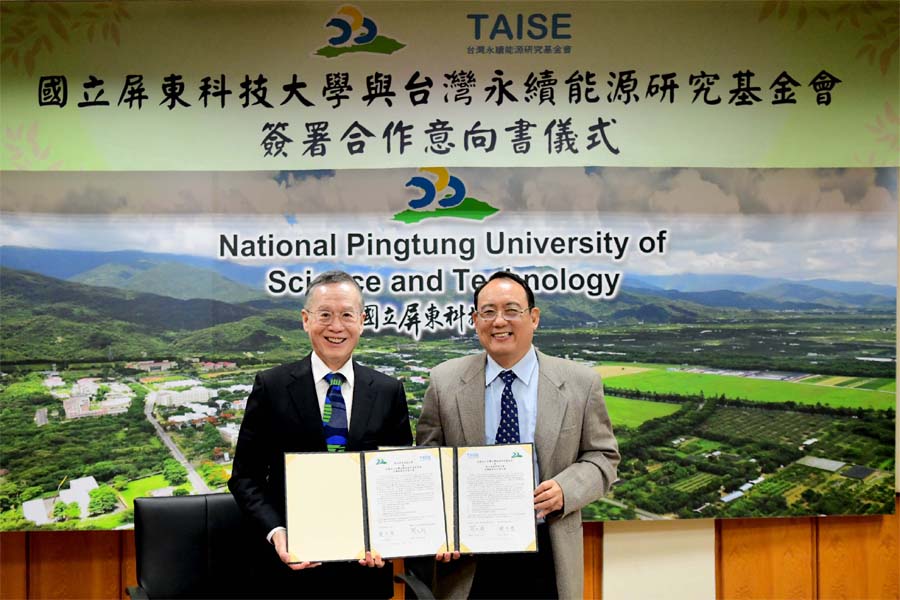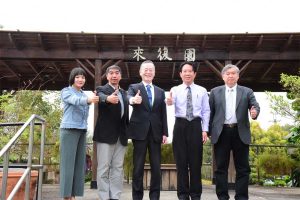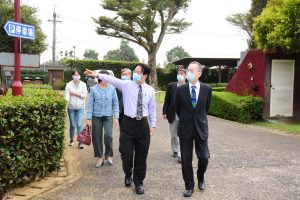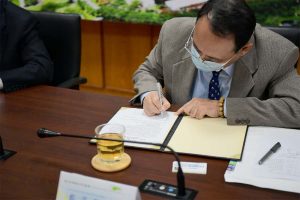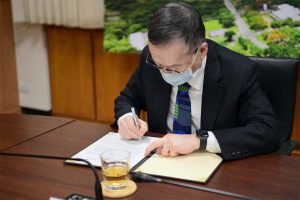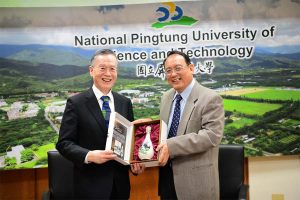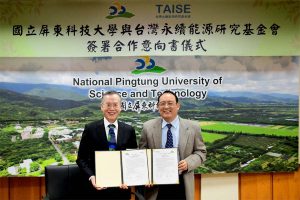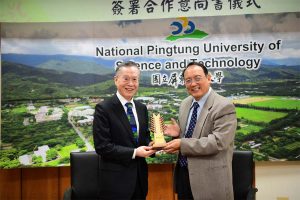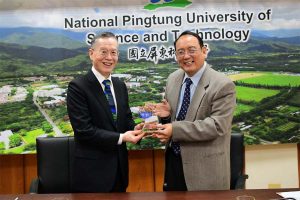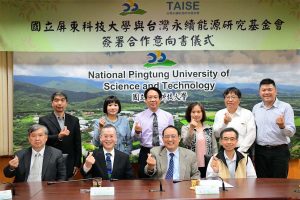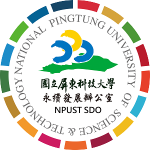For many years, NPUST has been committed to the promotion of ‘sustainable development’ and ‘university social responsibility’ (USR) in education, R&D and practical application. And though real-world action, the school has been using its academic capabilities to give back to society.
Recently taking things up a notch, NPUST began pursuing a new project that brings government, business and academia together to promote sustainable development and improve society’s awareness of ‘sustainability’ issues. In the new initiative, the Taiwan Institute for Sustainable Energy (TAISE) will be cooperating with the school to develop a number of different programs to further the agenda. To formalize the joint venture, on March 4th, a Memorandum of Cooperation (MoC) was signed between the parties at the NPUST Administrative Building.
NPUST President Chang-Hsien Tai explained that “agriculture development is no longer as focused with production quantity as it was in the past. In the future, it will gradually move towards ecosystem protection and community development. NPUST is making an effort to help meet sustainable development goals in agriculture and hopes are that with the cooperation and guidance of Ambassador Eugene Chien and the TAISE, NPUST’s work in sustainable development will be able to mature to a new level”.
A representative of TAISE said that “in the future, SDGs will be an important focus of work at all universities, with climate change influencing discourse related to university development. With the 2050 goal of “carbon neutrality” and the situations that our generation currently face, universities will need to rise to the occasion. NPUST’s expertise in agriculture has a very deep impact on society – and agriculture is one of the main targets for carbon neutrality. We hope that through our cooperation with NPUST we will be able to continue to promote sustainable development in Taiwan.”
In addition to helping Taiwan turn in the direction of sustainable development, TAISE has been holding the Taiwan Sustainability Awards for many years and has been an important platform for international conferences.
In cooperation with one another, NPUST and TAISE are currently planning a conference and training course on sustainable development. Together they will also host activities to “promote topics related to sustainable development”, “encourage sustainable development-related research and knowledge transfer ” and “support Green campuses”. They will also encourage faculty and student participation in ‘sustainability’ activities and promote commitment to the SDG Alliance. Through the activities, the goal is to transform understandings of corporate social responsibility, university social responsibility, sustainable energy, climate change and SDGs –developing consensus and putting the ideas to practice.


















